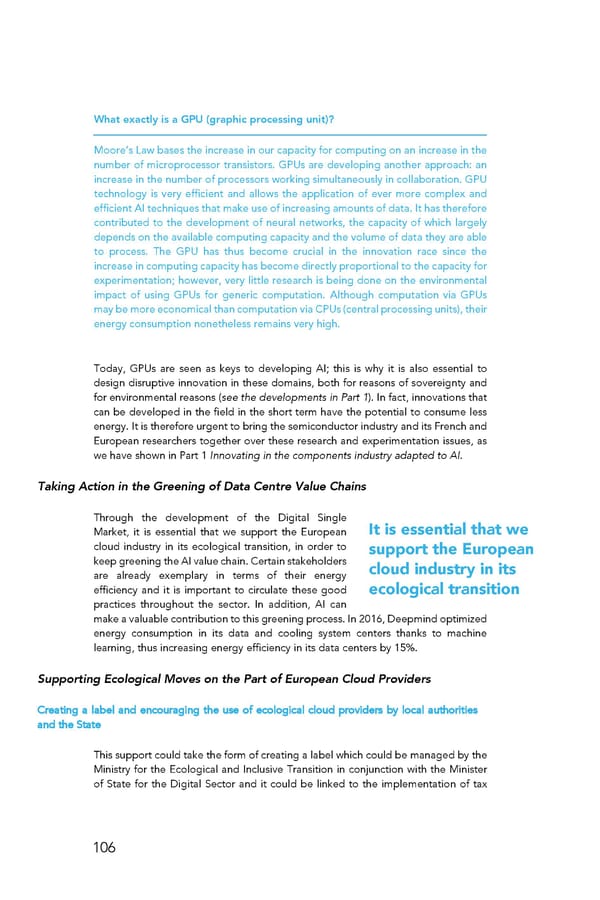What exactly is a GPU (graphic processing unit)? Moore’s Law bases the increase in our capacity for computing on an increase in the number of microprocessor transistors. GPUs are developing another approach: an increase in the number of processors working simultaneously in collaboration. GPU technology is very efficient and allows the application of ever more complex and efficient AI techniques that make use of increasing amounts of data. It has therefore contributed to the development of neural networks, the capacity of which largely depends on the available computing capacity and the volume of data they are able to process. The GPU has thus become crucial in the innovation race since the increase in computing capacity has become directly proportional to the capacity for experimentation; however, very little research is being done on the environmental impact of using GPUs for generic computation. Although computation via GPUs may be more economical than computation via CPUs (central processing units), their energy consumption nonetheless remains very high. Today, GPUs are seen as keys to developing AI; this is why it is also essential to design disruptive innovation in these domains, both for reasons of sovereignty and for environmental reasons (see the developments in Part 1). In fact, innovations that can be developed in the field in the short term have the potential to consume less energy. It is therefore urgent to bring the semiconductor industry and its French and European researchers together over these research and experimentation issues, as we have shown in Part 1 Innovating in the components industry adapted to AI. Taking Action in the Greening of Data Centre Value Chains Through the development of the Digital Single It is essential that we Market, it is essential that we support the European cloud industry in its ecological transition, in order to support the European keep greening the AI value chain. Certain stakeholders cloud industry in its are already exemplary in terms of their energy efficiency and it is important to circulate these good ecological transition practices throughout the sector. In addition, AI can make a valuable contribution to this greening process. In 2016, Deepmind optimized energy consumption in its data and cooling system centers thanks to machine learning, thus increasing energy efficiency in its data centers by 15%. Supporting Ecological Moves on the Part of European Cloud Providers Creating a label and encouraging the use of ecological cloud providers by local authorities and the State This support could take the form of creating a label which could be managed by the Ministry for the Ecological and Inclusive Transition in conjunction with the Minister of State for the Digital Sector and it could be linked to the implementation of tax 106
 For a Meaningful AI - Report Page 106 Page 108
For a Meaningful AI - Report Page 106 Page 108